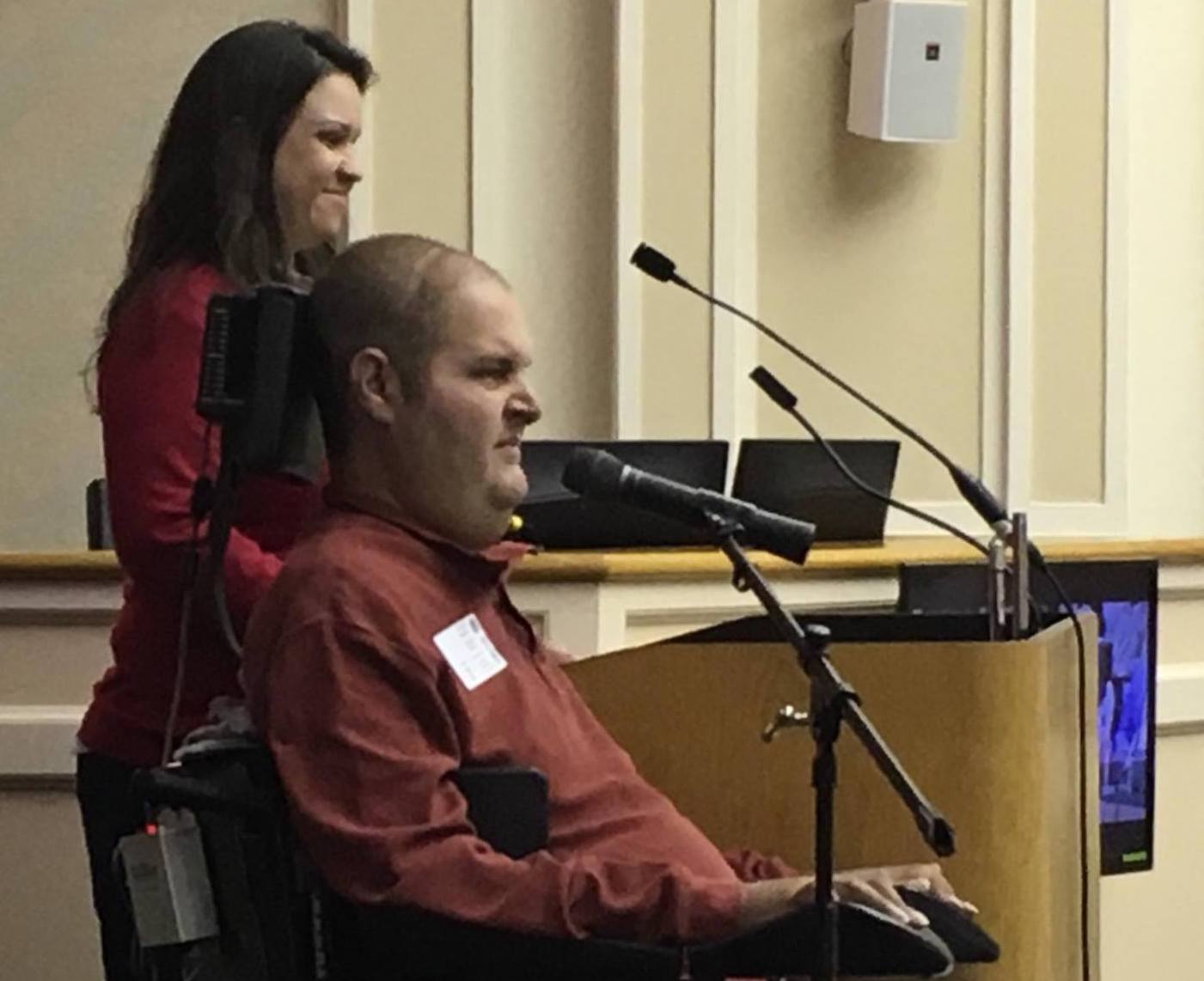Two residential building code changes written by a subcommittee of Lexington’s Americans with Disabilities Act (ADA) Task Force have now been adopted as part of the 2018 Kentucky Residential Code (KRC). With support from leaders in Lexington and the leadership of the ADA Task Force, these two KRC codes went into effect August 22, 2018 for the benefit of all Kentuckians!
In 2017 the Lexington Mayor’s office appointed an Americans with Disabilities Act (ADA) Task Force, as requested by Council member Peggy Henson. The task force included representatives of the City Council, Division of Building Inspection, LFUCG ADA Office, HDI, Lexington Fire Department, the Human Rights Commission, the Mayor’s Commission for People with Disabilities, Independence Place, Human Development Institute, and KCSCI. HDI’s Jason Jones was appointed to serve as chairperson, and HDI’s Christina Espinosa Bard was also appointed to the council.
The purpose of the task force was to:
- Explore options regarding how the city of Lexington can enforce compliance with the Americans with Disabilities Act in private businesses and how that aligns with regulations at the state and federal level.
- Consider current building codes as they relate to accessibility.
In December of 2017, Jason Jones and Christina Espinosa Bard presented the full recommendations to the City Council. With the help of Cash Olszowy, Building Inspection Manager, the task force also submitted two proposed code changes to the Kentucky Building Code, and two to the Kentucky Residential Code. Council member Richard Moloney was influential in advocating with the Department of Housing, Buildings and Construction, and the LFUCG supported the proposal legislatively. Here is the language of the changes now included in the KRC:
- R307.3 Blocking. A minimum of 2×6 blocking shall be required around toilet, tub and/or tub/ shower units between the heights of 33”-38”( 838-965 mm).
This means that bathrooms will be built with blocking behind walls to allow for secure installation of fixtures like towel bars and grab bars, so people can more safely use and customize their needs for safety in the bathroom.
- R311.2 Egress Door. Not less than one egress door shall be provided for each dwelling unit. The egress door shall be side hinged, and shall provide a clear width of not less than 32 inches (813 mm) where measured between the face of the door and the stop, with the door open 90 degrees (1.57 rad). The clear height of the door opening shall be not less than 78 inches (1981 mm) in height measured from the top of the threshold to the bottom of the stop. Other doors shall not be required to comply with these minimum dimensions. Other interior egress doors shall have a clear net opening width of not less than 32 (813 mm ). Exterior egress doors shall be readily openable from inside the dwelling without the use of a key or special knowledge or effort.
This means that the minimum widths for passage through a dwelling must be 32” clear! Currently homes could have interior doors as small as 24”, which is not accessible. This change greatly increases access to rooms within a home to a greater number of Kentuckians, as 32” clear is the baseline for access by the greatest number of people!
Code Adoption Notice: http://dhbc.ky.gov/SiteAssets/Lists/Announcements/NewForm/New%20Codes.pdf
2018 KBC: http://dhbc.ky.gov/Documents/2018%20Kentucky%20Residential%20Code%20-%20FINAL_Cl



